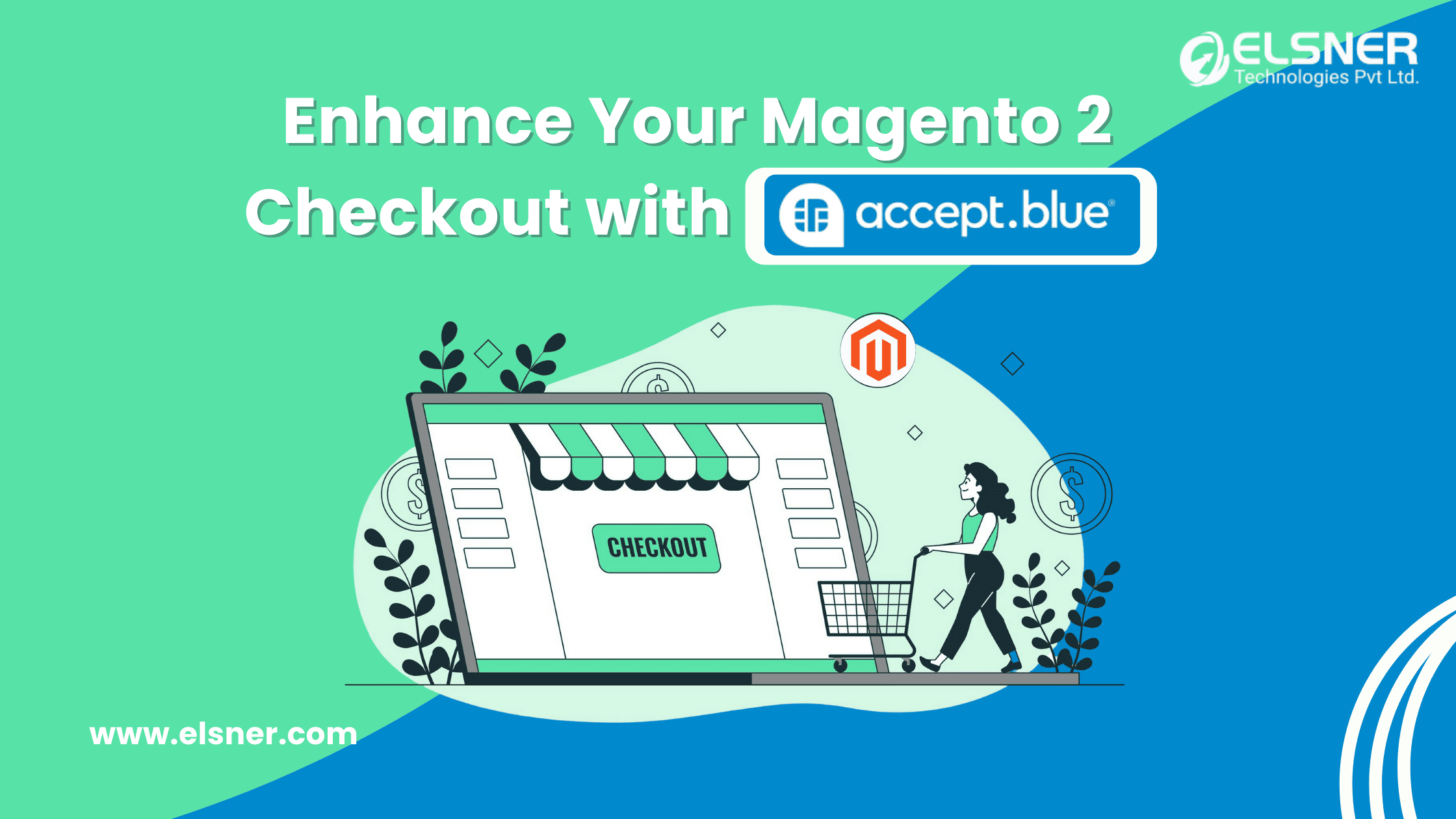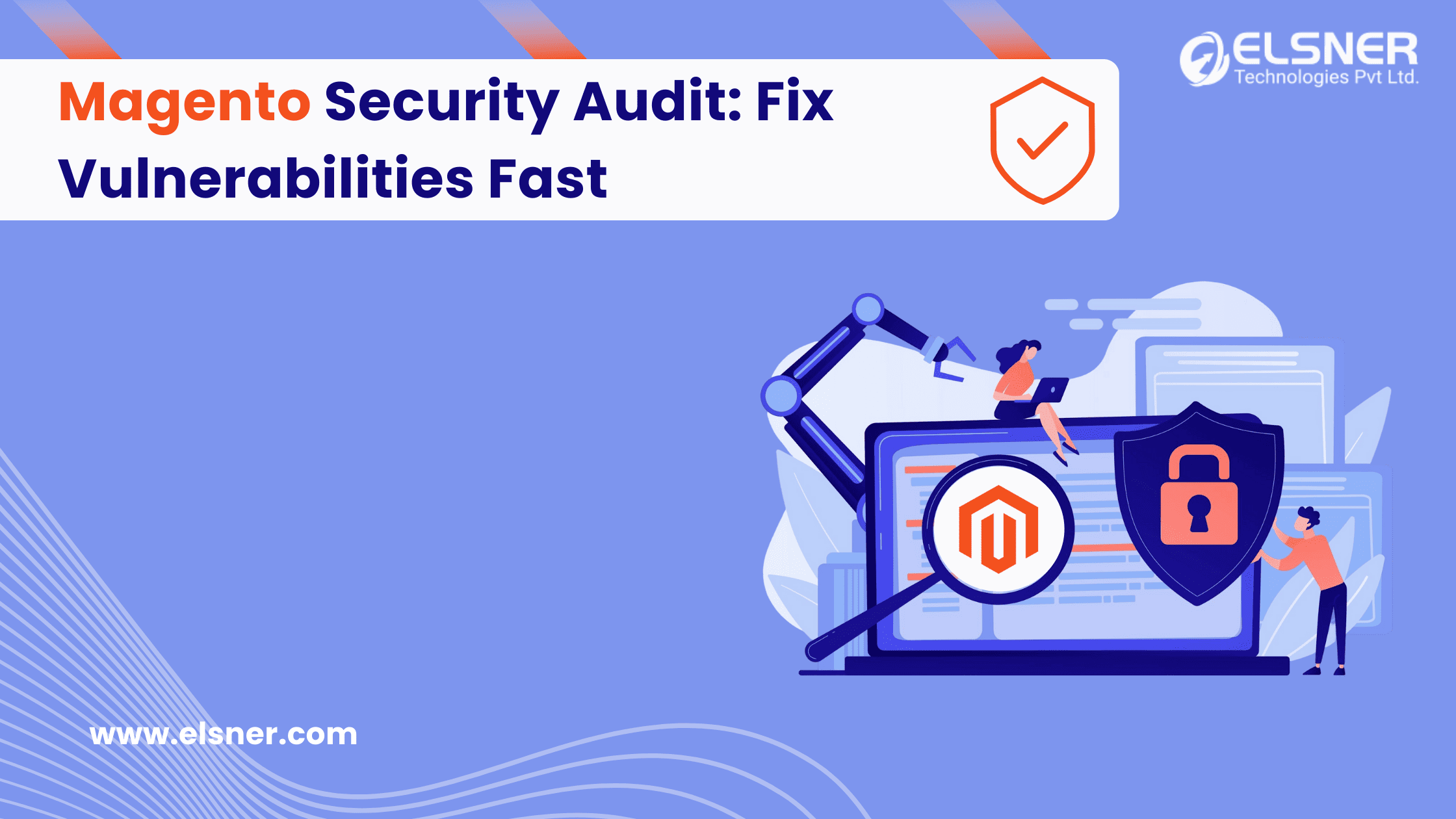- What is Performance Optimization for Magento 2?
- What Metrics Does One Need to Check for Performance Monitoring and Testing?
- Page Load Time:
- Server Response Time:
- Cart Abandonment Rate:
- Conversion Rate Optimsation:
- How is Performance Tested for Magento 2 Stores?
- Load Testing:
- Stress Testing:
- Scalability Testing:
- What Strategies Are Ideal for Performance Optimization?
- Code Profiling & Optimization
- Caching Mechanisms
- Database Optimization
- Indexing & Query Improvement
- Parting Words
Magento is undoubtedly one of the ideal choices for all budding entrepreneurs to build their eCommerce stores. Even though the platform has a big array of features and functionalities for online business owners to scale their operations, there is still a need for performance optimization to improve the productivity rate one notch higher.
This mostly happens because being able to use all the Magento features to your advantage isn’t as easy as it seems. You must hire a Magento 2 development company to get you an efficient store ready in the first place and then extend their help to integrate effective monitoring and testing of performance to eradicate any potential flaws in the overall process.
But what magento 2 performance monitoring and testing actually is? Is it crucial for you to run your Magento store? Well, you ought to dive deeper into this article and get a clear idea of what’s performance monitoring or testing and why your store needs it on priority. So, read along this article till the end.
What is Performance Optimization for Magento 2?
Your Magento store, loaded with a plethora of features, must be free from all types of glitches to ensure a streamlined performance. When you hire a Magento developer to develop your site and keep a tab on its performance, you will have a comprehensive insight into the different functional aspects of the store.
Now, it is important because you will be getting a holistic view of how your Magento store is impacting the business success or customers’ experience. Suppose you just assume that the Magento development services have turned out exactly as you wanted them to be, and don’t necessarily pay emphasis to the performance monitoring over time.
In that case, you won’t be able to figure out if any of the features went unresponsive over time. Thus, it might lead to increased bounce rates, cart abandonment and misunderstood brand reputation. You must understand that bounce rates and these negative traits will gradually push you out of the market if you don’t get some things right.
Thus, this is where performance monitoring and testing come to the scene!
What Metrics Does One Need to Check for Performance Monitoring and Testing?
You can hire Magento experts and make them part of your long-term performance assessment team for your eCommerce business. Hiring professionals for the job will make it easier for you to monitor the key performance parameters and get them fixed in no time. It is because they are aware of what is responsible for any kind of performance degradation in your Magento store.
So, some of the metrics that you must be serious about for managing or improving the performance of your Magento 2 store are:
Page Load Time:
The first and most important metric that you must count on is page load time. This indicates the time that a webpage or website takes to load completely. The aim for you will be to reduce these page load times and keep it under 3 seconds. The Magento theme you integrate should support the same and must drive better engagement.
Taking the help of a Magento development agency, you will be able to optimise the page load time of your store, and reduce the bounce rates. As a result, the engagement rate will be higher. Some of the approaches that the experts would do to achieve a considerable page load time include, optimisation of images, reduction of server response time and enhancing the browser caching functions.
Server Response Time:
For you to know, server response time is defined as the overall duration that the site’s server needs to respond to some request made by the users. When the response time of the server is slower, it might be due to various reasons, which include inefficient code, limited server resources, or improper database queries.
You must track the metric and refine the cache mechanisms of your database query to bring the response time under acceptable figures. Apart from that, you can also consider upgrading the hosting infrastructure to enhance the outcome of this metric. Hire a Magento web developer and let them do the needful for monitoring and optimising this performance aspect of your store.
Cart Abandonment Rate:
Cart abandonment is one of the most crucial metrics that indicates the count of people who are leaving your store without making a purchase. It can mostly happen for diverse reasons. A slow loading site, complex checkout process, difficult site navigation and other such issues might lead your customers to abandon their carts.
It is important to narrow down the various factors due to which the cart abandonment rate is possibly increasing for your Magento store. Take the help of a Magento 2 development company to address fixing those issues on priority. This shall help suppress the cart abandonment rate and drive impeccable sales.
Conversion Rate Optimsation:
Most of you might say conversion rate is not directly related to the store’s performance but is a success metric. But, it is still important in some aspects to define your store’s performance quotient. If your website is not perfect in its design, theme and feature elements, you cannot expect it to drive higher conversions.
There might indeed be a plethora of reasons that might indicate lowered conversion rates for your Magento store, and lack of performance is one of them. So, do look out for monitoring and testing the performance aspects with respect to the conversion rate as well. It is because the customers will be enticed to buy from you only if your site ensures a better experience.
How is Performance Tested for Magento 2 Stores?
Performance testing is part of the overall Magento development services if you have asked for it. With such a service request, you will be able to identify or rectify the potential bottlenecks in performance, optimise the code, and fine-tune the server configurations. Moreover, performance testing will also ensure that your store doesn’t drop its operational performance.
Thus, you can expect to attain user satisfaction and promote customer retention, which will directly impact the rate of conversions and revenue generation. When you hire an expert Magento developer to look after your store’s performance, they would suggest evaluation on multiple aspects, which include:
Load Testing:
Load testing is the approach where the experts will be assessing how the system performs under specific loads. Simulations will be executed to determine the bottlenecks in your store’s performance. The common tools that the experts will use for load testing of your Magento store include Gatling or Apache JMeter.
These tools will allow the testers to create custom scripts for mimicking the user behaviour under various load scenarios.
Stress Testing:
Here, the experts will invoke planned stress upon your Magento store functions to push them to the maximum limit. Stress testing will help you identify any potential vulnerabilities or breaking points. You will be able to understand the system’s behaviour in a more sophisticated manner when it is operating under certain extreme conditions.
The experts will use the same Gatling or Apache JMeter for executing the stress tests but upon certain configurations.
Scalability Testing:
Scalability testing, as the name suggests, will test if the Magento 2 store can handle more resources and increased operational load. With this, you can determine if you can expand your Magento store and still expect improved performance aspects.
Gatling and Apache JMeter will be able to simulate the traffic spikes for testing your store upon scalability parameters.
What Strategies Are Ideal for Performance Optimization?
Upon successful monitoring and testing of your Magento store performance, the next consideration is optimisation. So, some of the crucial performance optimisation strategies for your Magento 2 store are as follows:
Code Profiling & Optimization
Magento has a built-in profiler, but you can also consider using third-party options for determining any potential performance issues in your store code. With this, you will be able to focus on specific areas of your site that need ideal optimization.
Caching Mechanisms
Magento 2 offers you built-in caching mechanisms, including block cache or full-page cache. Thus, hire Magento developersand let them use dedicated tools for implementing opcode caching to reduce the page loading and server load times.
Database Optimization
Let experts help you eliminate all unnecessary data and cache the files by using indexes efficiently. This shall help you employ flat catalogue tables for improving query performance and reducing database queries.
Indexing & Query Improvement
The professionals make use of Magento’s built-in feature for indexing management, which helps manage and configure the indexes right away. This will further help you eliminate the use of any unwanted extensions and be able to review the XML and HTML layout files for query optimisation.
Parting Words
Monitoring your Magento store performance is undeniably a crucial approach, which will lead you to decide on how to test and optimise the flaws efficiently. As there is an immense demand for a Magento platform among eCommerce entrepreneurs, it becomes important for you to beat the competition and stay ahead in the race. And for that, you must be able to continuously monitor your store performance to be able to address the performance issues on demand.
Rigorous testing will help you uncover the bottlenecks and areas that need improvement, allowing you to fix all your performance issues. You will be able to keep your store optimal enough to adapt your expansion or scaling plans. Hire a Magento development company that offers you performance monitoring, testing and optimisation solutions alongside their development services to help you avail an all-rounder eCommerce solution.

About Author
Pankaj Sakariya - Delivery Manager
Pankaj is a results-driven professional with a track record of successfully managing high-impact projects. His ability to balance client expectations with operational excellence makes him an invaluable asset. Pankaj is committed to ensuring smooth delivery and exceeding client expectations, with a strong focus on quality and team collaboration.




